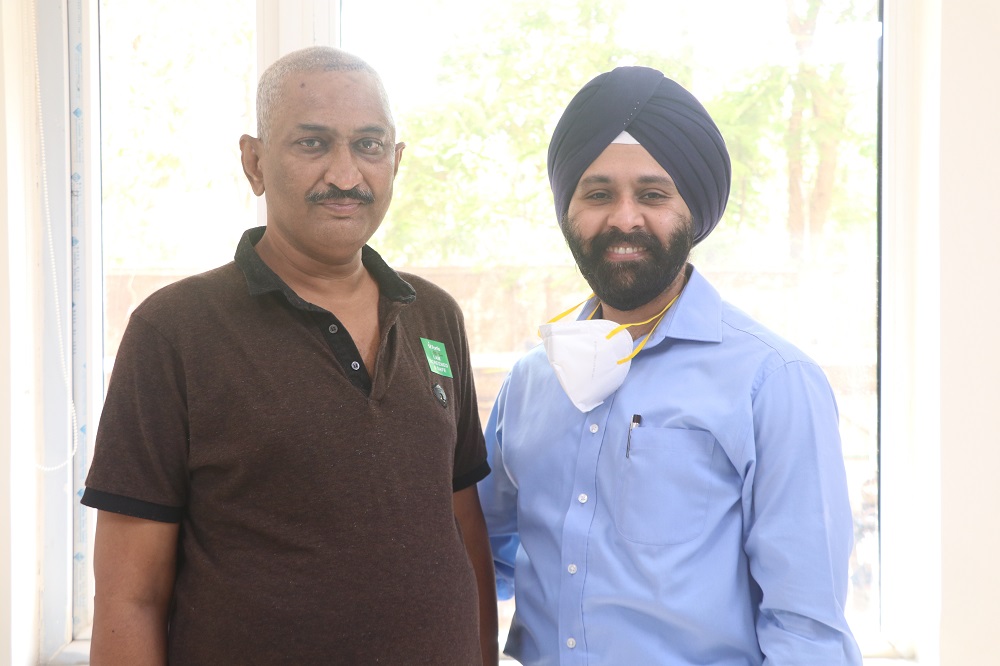New Delhi: Doctors in Mumbai’s Mulund performed a unique awake brain craniotomy last month to save a man from being mute for the rest of his life. 40-year-old Ravindra Chopade was suffering from focal seizures and word-finding difficulty. While his family was unable to understand the real cause of his problem, they visited Dr Gurneet Singh Sawhney, Senior Consultant–Neurosurgery, Fortis Hospital, Mulund, to find a definite diagnosis. The MRI revealed a large left frontal tumour in the speech area. The challenge was to remove this tumour without affecting his speech. So, the only option left was to perform an “awake brain craniotomy”, in which the patient is asked to perform speaking, reading, and movement tests while stimulating the exposed brain. The Sunday Guardian spoke to Dr Gurneet. Excerpts:
Q: Awake brain craniotomy is a rare neurosurgical technique in India. How did you and your team go about it?
A: Awake Brain Craniotomy requires immense teamwork and cooperation among the medical teams and with the patient. With thorough planning, clear vision, and immense cooperation from the patient, we went ahead with the case.
Q. Initially, the patient must have been scared and skeptical about this procedure. How did you convince him?
A: The patient was nervous indeed, but trust abolishes all the fears and trust comes from complete transparency with the patient. I explained the procedure to the patient and his family in detail, the benefits of doing this procedure, and the risks involved with it. He was comfortable after this discussion and agreed to go ahead with the procedure.
Q: What are the challenges you faced during the surgical procedure?
A: The main challenges were getting the staff trained to conduct this procedure, getting the infrastructure ready, and priming the patient and their relatives.
Q: Generally, what are the complications if this procedure goes wrong?
A: The complications are Intraoperative seizures, damage to the speech area, possible excessive bleeding, and the requirement of Complete Anesthesia (CA).
Q: Was there any post-operative condition?
A: Postoperatively, the patient had to undergo speech therapy to improve his speech.
Q: What type of patients are suitable or not suitable for this procedure?
A: Patients who are co-operative without any premorbid conditions are suitable for this surgery. Patients who are aged or having severe Serine Deficiency Disorders are not suitable.
Q: Do you think there is an ardent need to enhance the availability of such procedures?
A: Yes, I think such procedures can completely change the outcome and perspective of neurosurgery and can garner excellent results. Such procedures should be done worldwide on an increased scale.
Q: What is the most crucial part of these procedures to avoid any complications?
A: The most crucial part is to be prepared for all sorts of complications. Think about the steps of the surgery, and the possible complications before commencing the procedure.
Q: Do you think it’s still a long way to go for India in healthcare and medical science to achieve its goal?
A: India has a very high proficiency when it comes to medical science. We have state-of-the-art infrastructure and well-trained doctors to use them. We are already way ahead on achieving this goal.
Meet Dr Gurneet, who pulled off a risky, rare surgery
- Advertisement -

